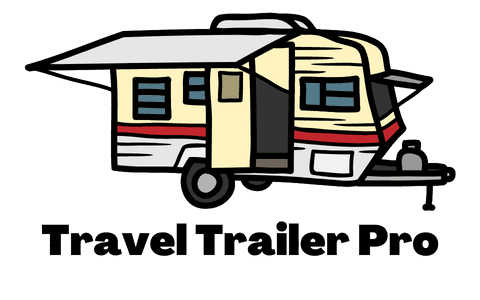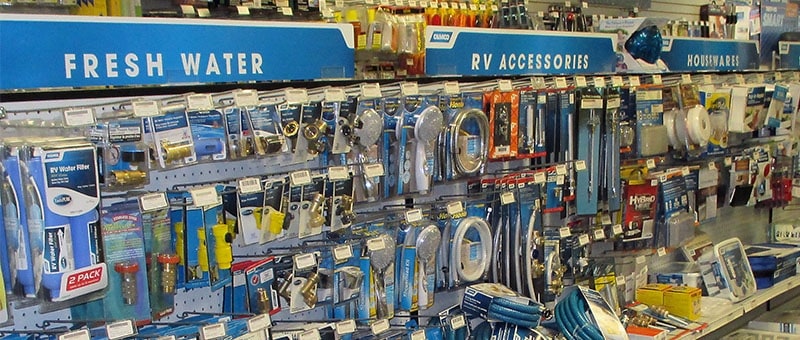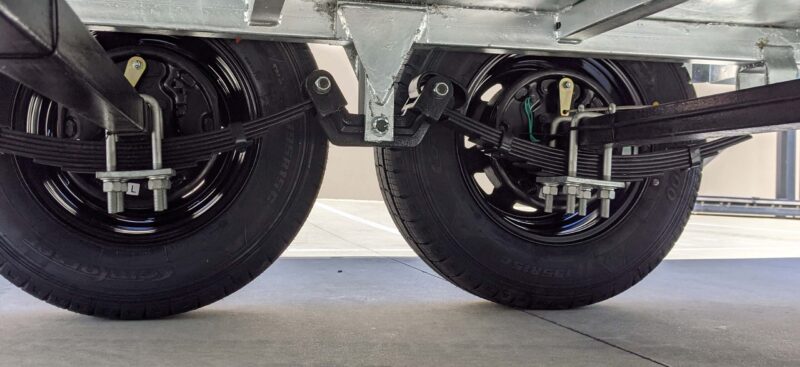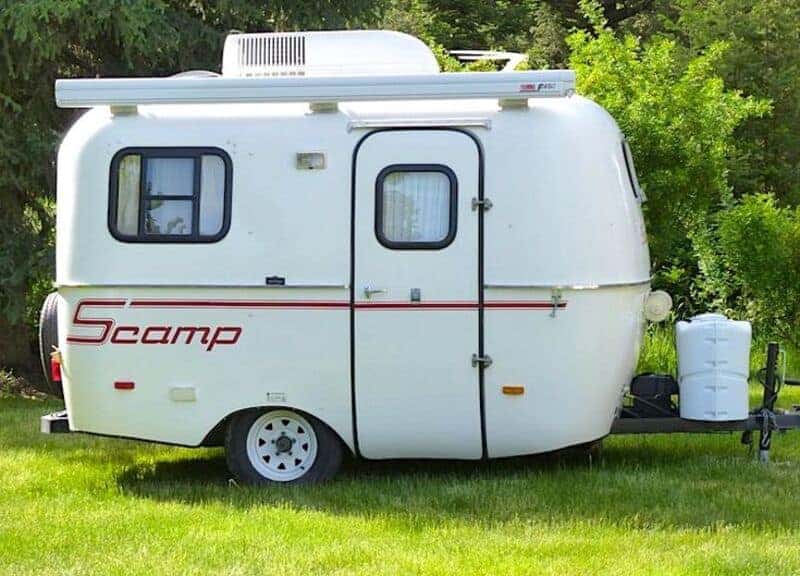Carrying some essential RV spare parts can enhance the freedom you want in the RV lifestyle. In addition, garnering a little know-how through YouTube blogs, fellow RVers, or the many articles that RV Blogger shares will help you solve your RV problem.
DIY repairs with RV spare parts on board fix the issue immediately, instead of leaving your coach at the RV dealer for weeks at a time waiting for your life, and travels, to begin.
Here are some essential RV spare parts you want to ensure you have.
17 Essential RV Spare Parts You’ll Want with You
1. Spare Tires
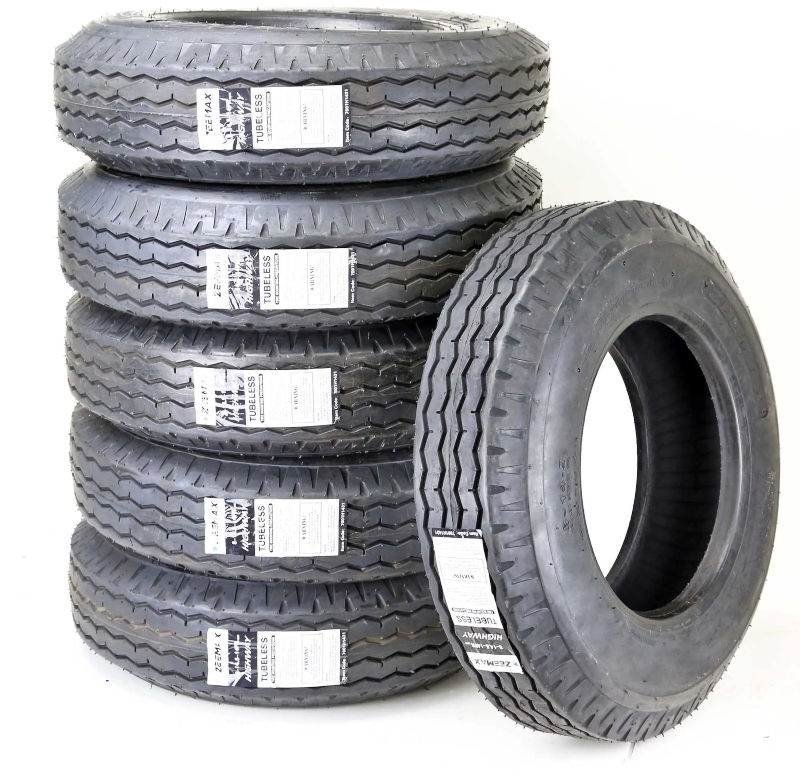
Keeping up with your tire maintenance and having a good spare tire will go a long way toward keeping you on the road. Ensure you add tire inspections and a good tire pressure monitoring device to your pre-trip and maintenance list. Learn more about how to avoid RV tire blowouts in our detailed discussion.
2. Propane Regulator
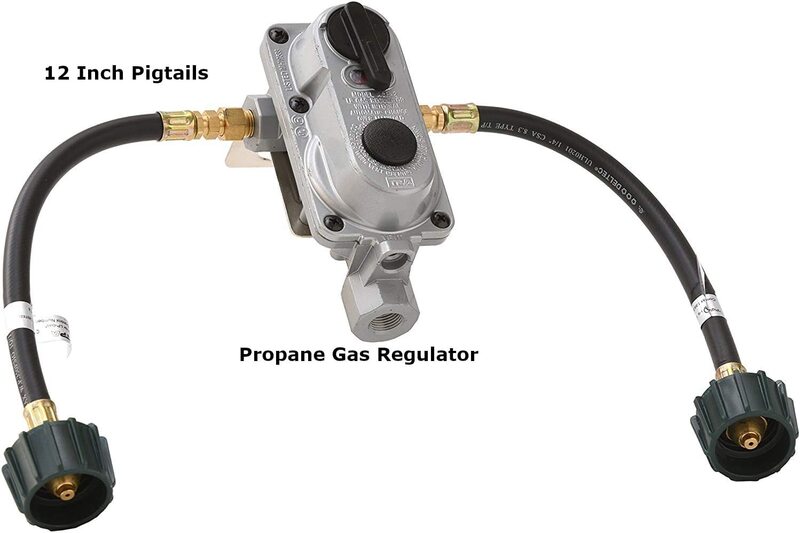
A propane regulator is a device that connects the propane bottles to the rest of your RV’s propane system. It controls the fuel from the tank, so the flow stays manageable. It also acts as a safety device because you could experience ruptured hoses or even an explosion without it.
If you ever have issues with your propane regulator, learn how you can troubleshoot the problem yourself.
3. 12V DC Fuses
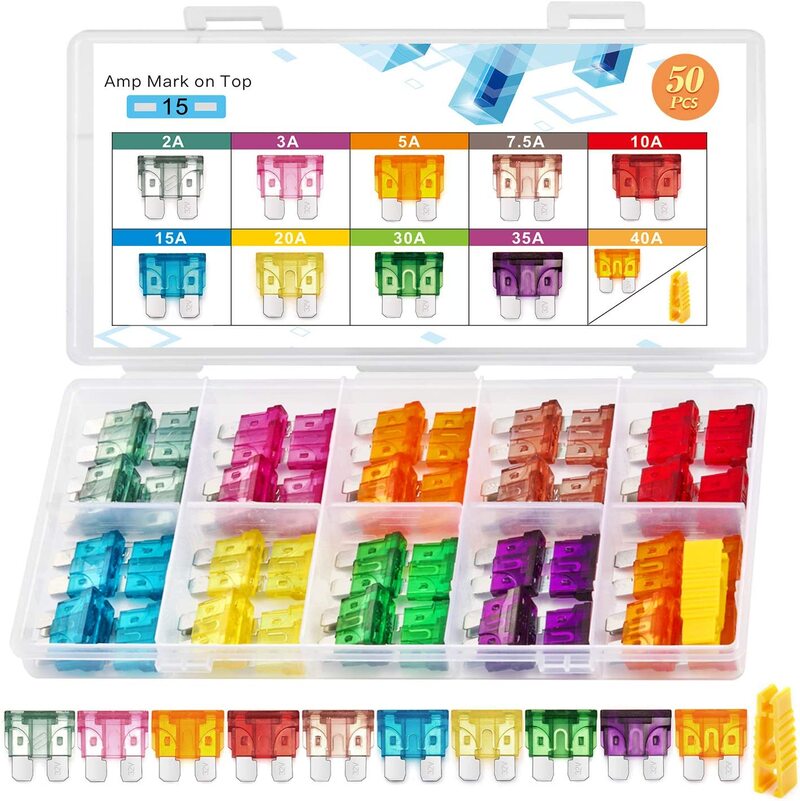
Many things in your RV run off 12V direct current (DC) and alternating current (AC). Devices like your microwave, TV, outlets, lighting, air conditioner, slideouts, and more. A set of fuses as backup is vital to keep your motorhome’s automotive and RV’s coach electric systems working.
4. Motor Oil and Other Fluids
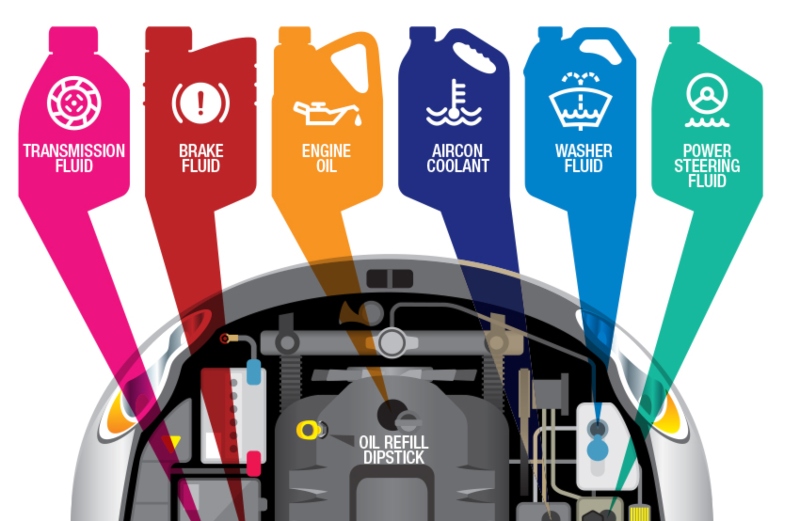
Taking care of the oil in your motorhome or tow vehicle’s engine is an essential part of its care. The oil provides lubrication for moving parts and keeps dirt from building up.
The other fluids also keep your motorhome running smoothly. Keep up with the maintenance and top off the fluids if they run low. You want to keep an extra bottle handy for:
- Air Conditioning Coolant
- All Purpose ATF Transmission Fluid
- Brake Fluid
- Distilled Water for Lead-Acid Batteries
- Engine Oil
- Generator Oil
- Hydraulic Fluid for Power Jacks
- Power Steering Fluid
- Radiator Fluid
- Windshield Washer Fluid
In a pinch, all-purpose automatic transmission fluid (ATF) can act as your power hydraulic jack and power steering fluid. Water will work to substitute radiator fluid until you can get it fixed.
Distilled water is the liquid inside your lead-acid battery– any other kind of water works but isn’t recommended. If you have to add distilled water to your lead-acid battery, it may be time to replace it.
5. Extra Fuel and DEF
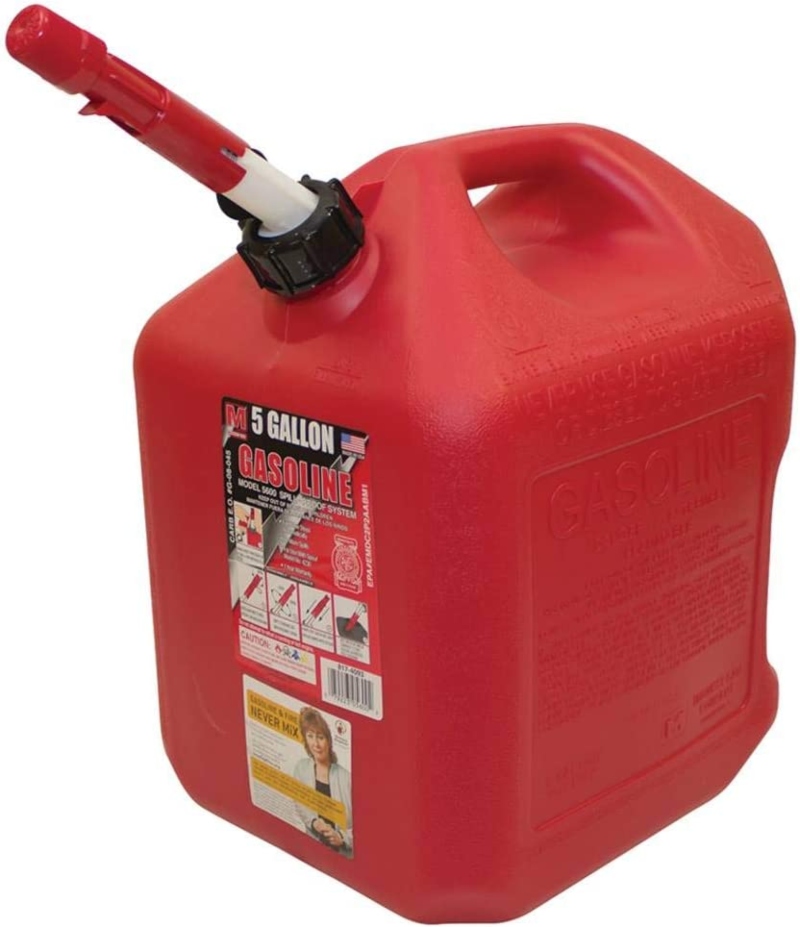
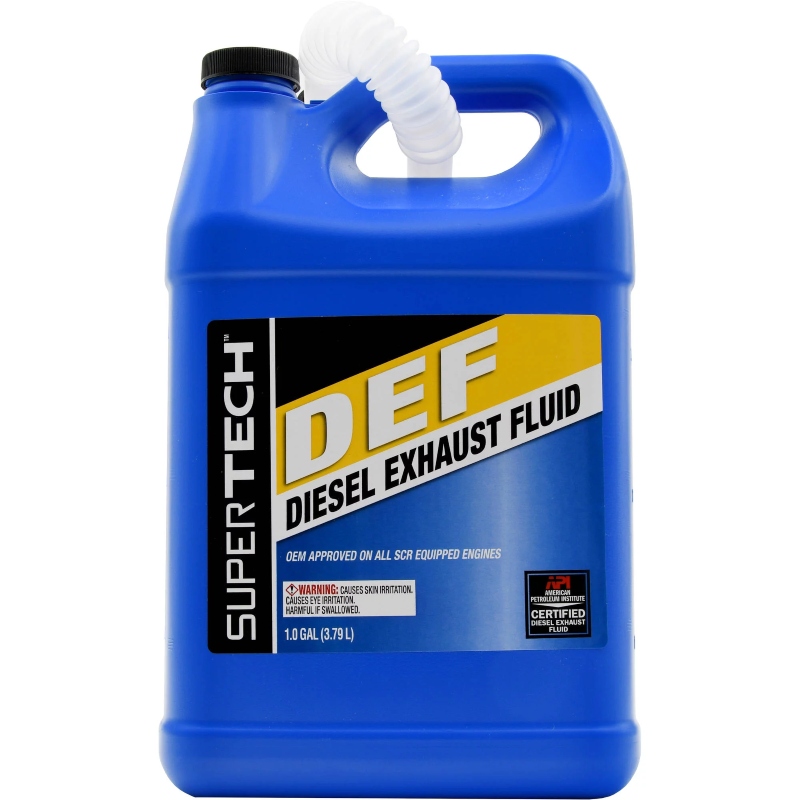
I’ve only run out of fuel once in my life, but it’s a helpless feeling when you do. If you have a large motorhome, toterhome, or heavy/super-duty pickup, it’s hard sometimes to find a gas station you can maneuver.
Sometimes you must take that gas gauge to the limit trying to find a place to fill up. You really don’t want to get stuck on the side of the road. That’s why it’s always good to gas up at a 1/4 or 1/2 tank.
Having a collapsable gas container with gas is a great way to have peace of mind while traveling. You also might need it for a gas generator later. It never hurts to be prepared when it comes to having fuel for your trip.
Diesel motorhomes and tow vehicles will also want to keep a container of DEF with them. You may have to fill the Diesel Engine Fluid (DEF) once a month, but you may run into that one moment where you run out and need it.
6. Batteries
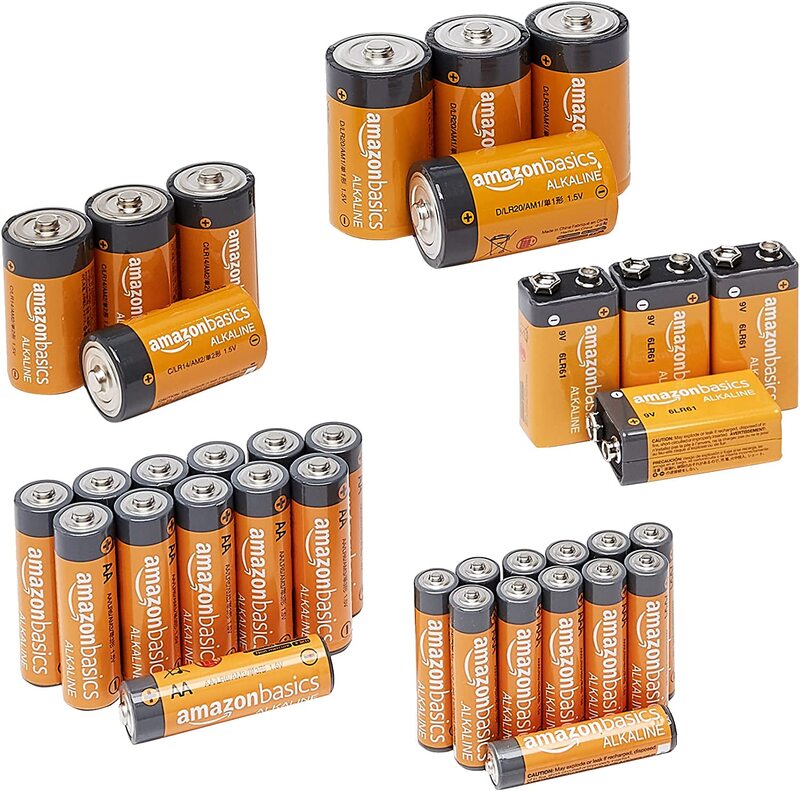
Batteries are another essential item that you don’t want to be without. Make sure you have a supply of all sizes for all your electronic devices. Rechargeable batteries of all sizes with a charger are a great way to ensure you are never without power.
7. Duct and Electrical Tape
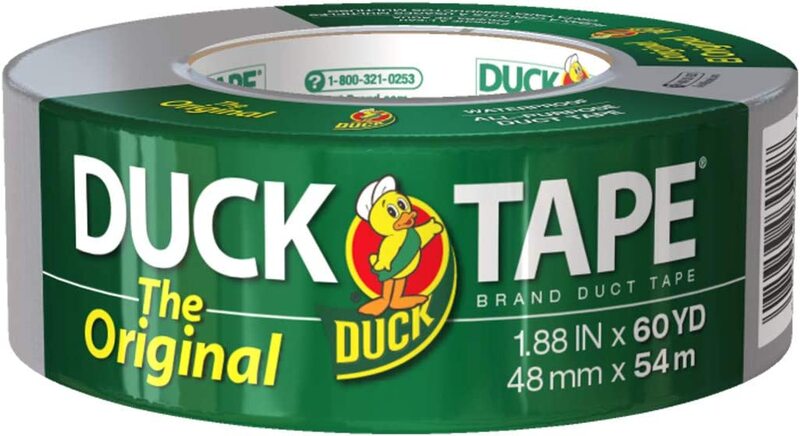
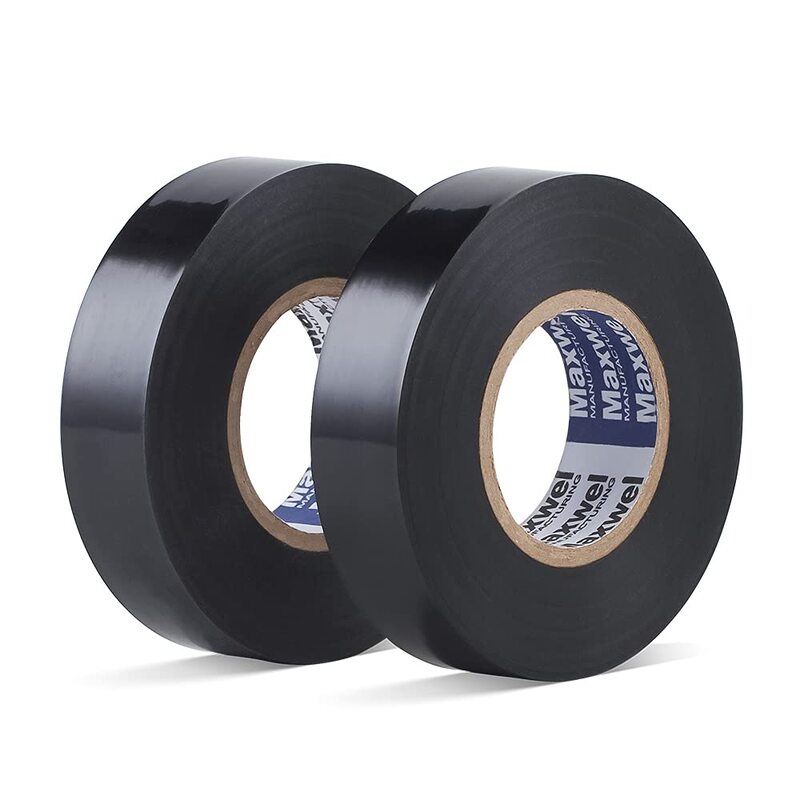
Duct tape and electrical tape are temporary cures for many things in your RV. What if you have a broken window on the highway and its threatening rain? A plastic bag and duct tape will help keep everything dry while you get somewhere to fix the problem. Duct tape is an essential repair tool that can solve many issues you might encounter.
Electrical tape is another must-have. It can insulate wires to prevent fires and fix some electrical-related problems. An all-weather tape for outdoor and indoor use is best.
8. Essential Toolset
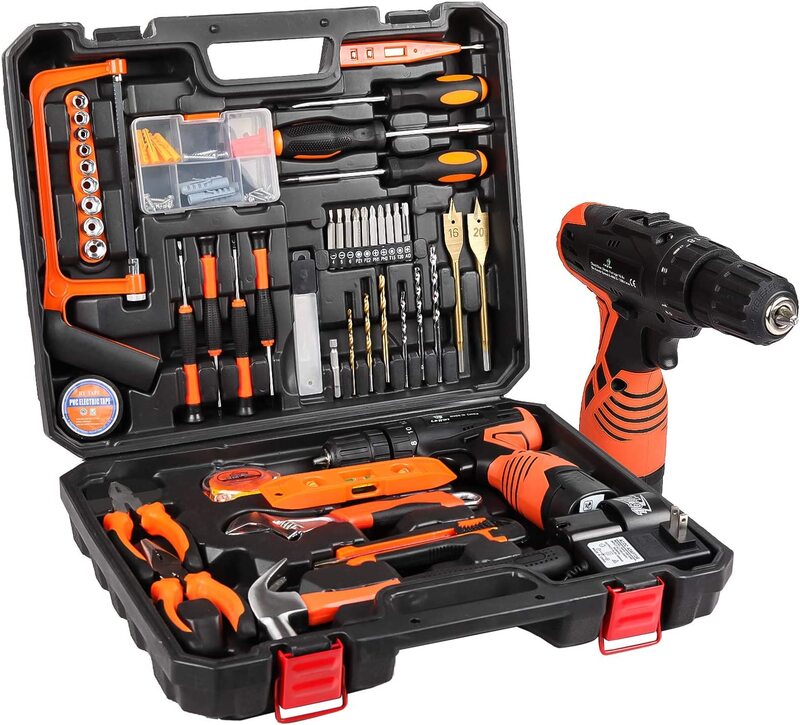
Check out this toolset that carries so many of the tools you will need in your RV travels. This kit includes a cordless drill, screwdrivers, hammer, tape, box cutter, needle nose plier, and tape measure.
The tools are organized in a case, so they’re stored together and are easy to find. You also get a rechargeable battery for the drill and plenty of drill bits. Your tool collection may build up through your RV life, but starting out with a starter kit ensures you have the tools you need for the most common RV repairs.
9. Water Pressure Regulator
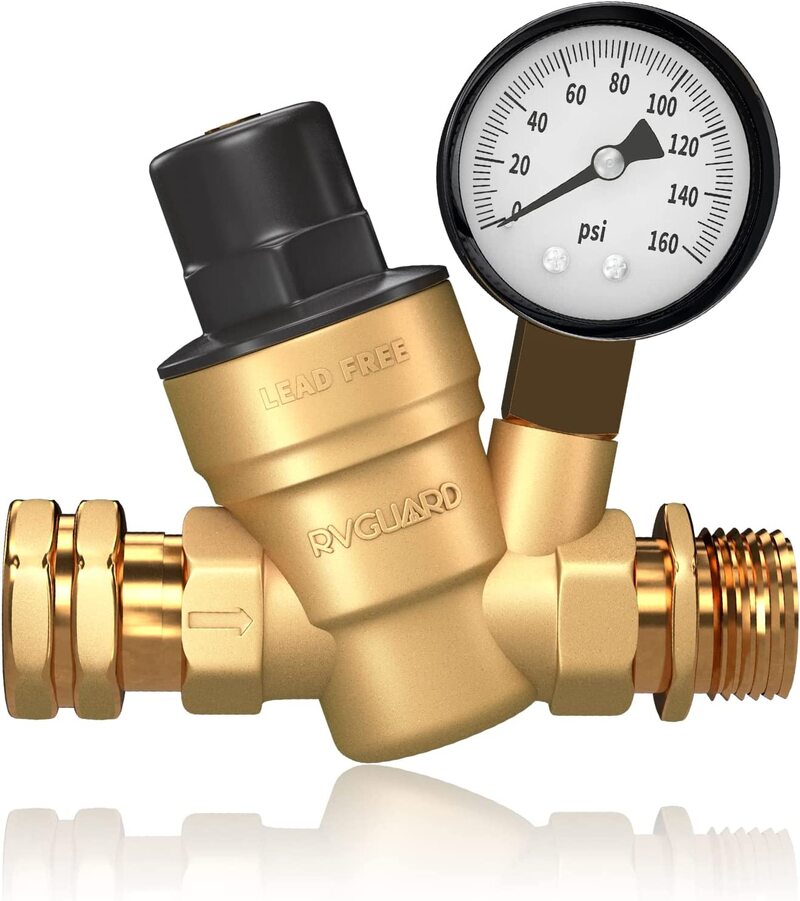
Water is essential in your RV; an RV water pressure regulator can keep your shower, toilet, and sinks humming. You might think you can just pull up to your RV site, hook up your water and get on with your trip.
You might not know that sometimes water pressure that’s too high or too low can cause problems. This tool can help keep your water at constant pressure and prevent damaging your pipes.
10. Spare Water Tank and Water Hoses
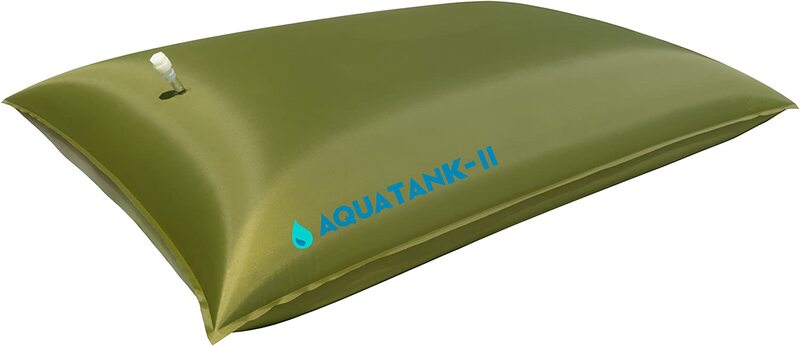
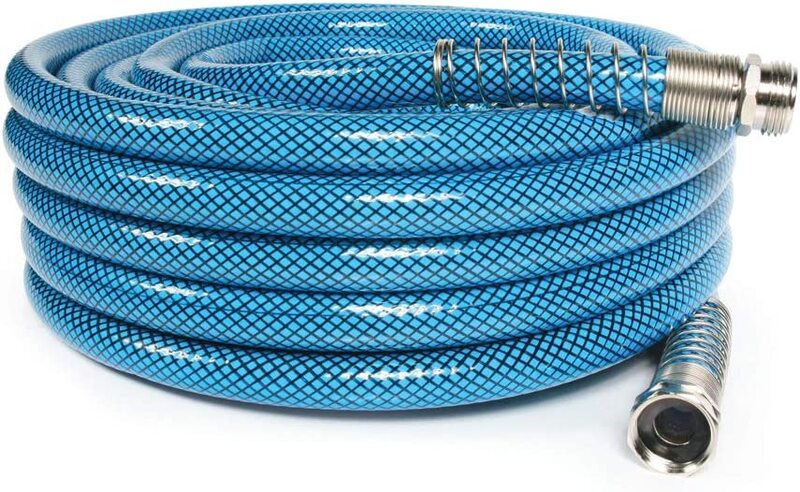
When it comes to water hoses, first and foremost, ensure you have a hose that’s safe for drinking water. A garden hose won’t do because they don’t have the inner anti-chemical leaching insulation like RV hoses.
A spare freshwater tank isn’t something you might have considered, but these portable water bladders are great for boondocking or when fresh water isn’t available. They come in various sizes, up to 300 gallons.
11. Holding Tank Treatment
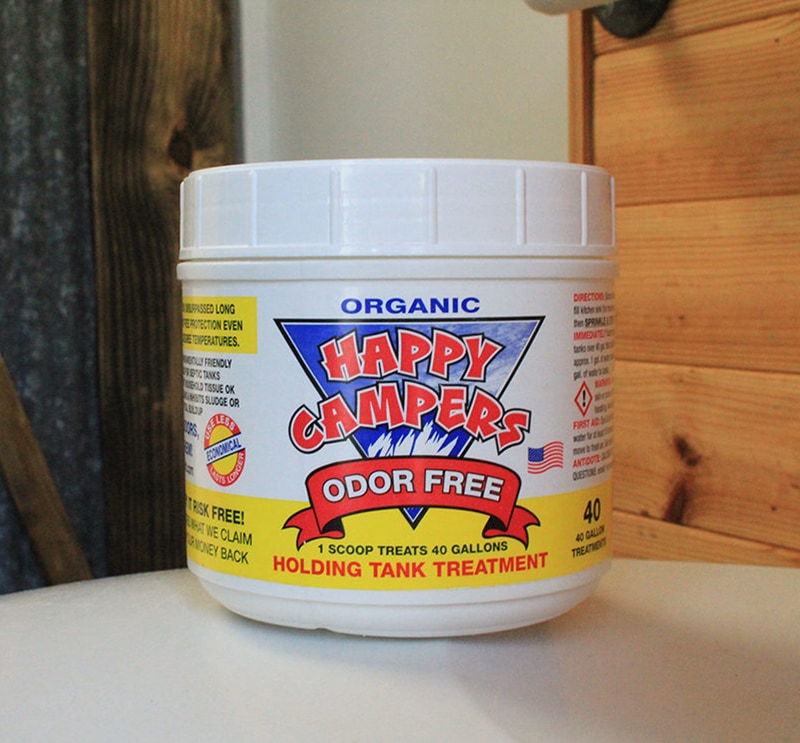
There’s no option here. Holding tank treatment is a must-have to keep your holding tanks flowing smoothly. You want to use a non-formaldehyde, septic-safe version that’s eco-friendly.
Happy Camper breaks down waste within a few hours and isn’t harmful to your plumbing. This blend of minerals and micronutrients will work in your black and gray tanks.
12. Surge Protectors
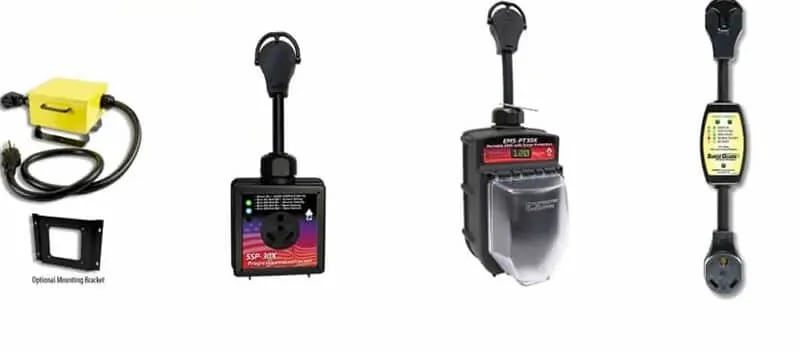
A surge protector is another one of those must-have items. This will protect your family, electronic equipment, and RV property in case of a power surge. Low voltage is just as dangerous as high voltage to your RV’s electrical system, so you want an RV surge protector with your RV spare parts.
Even if you have a built-in RV surge protector, it’s always a good idea to have one protecting your RV from the campground’s electric power box.
13. Ties and Hooks
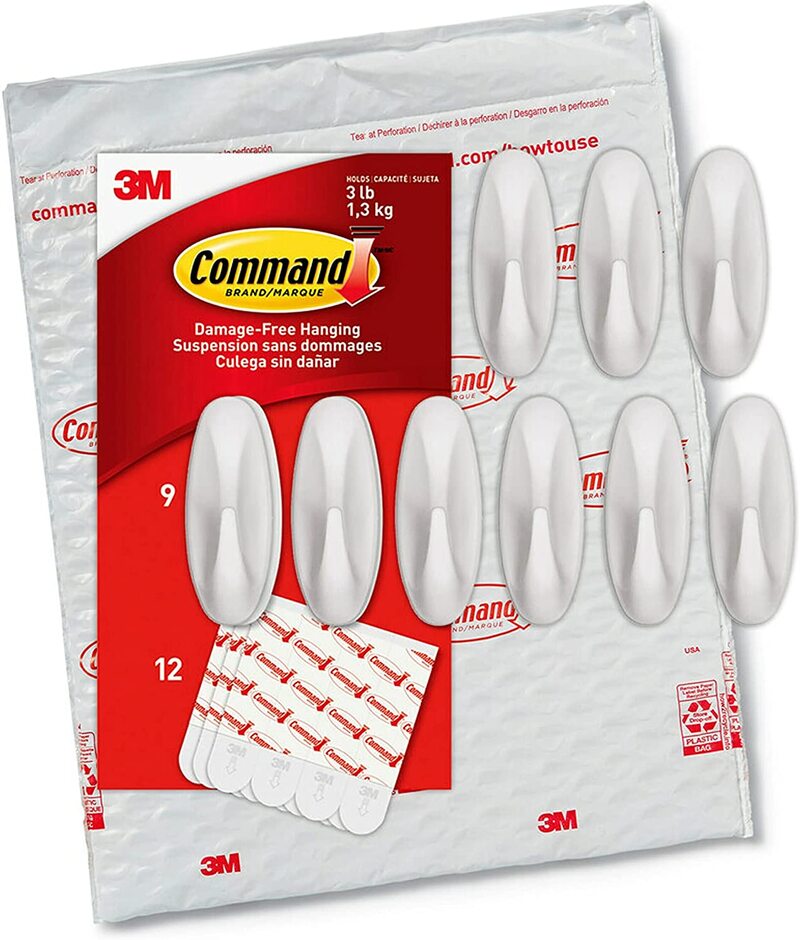
Command hooks are an RVers best friend. These are great for decorating your RV. They go on and come off quickly. Depending on the size, they can hold quite a bit of weight. We use ours to organize keys, dog leashes, brooms, dust pans, and more. Always keep a few spares on hand as you think of many items you can hang.
14. Sealants
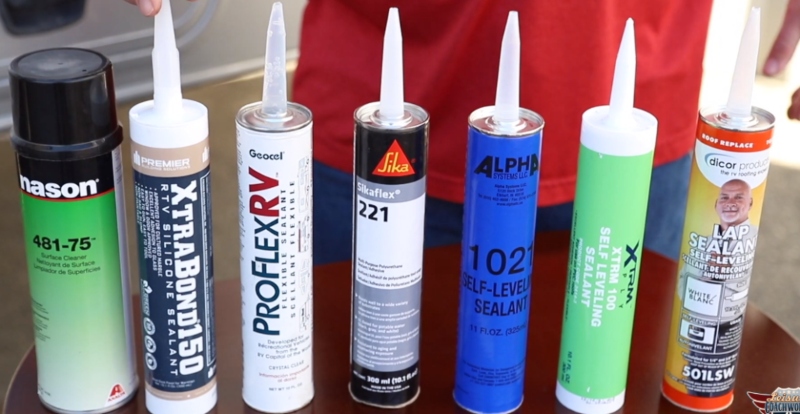
Sealants create a watertight seal along the roof’s edges, around air vents, vent pipes, air conditioners, screw heads, and more. Water to an RV is like throwing a bucket on the Wicked Witch of the North. You don’t want things “melting” in your RV.
Sealants are made flexible, making them perfect for an RV that moves and shifts as it’s heading down the road. Look for silicone sealants that adhere to aluminum, fiberglass, wood, and plastic. Choose one that’s approved for outdoor use.
15. Drive Belts
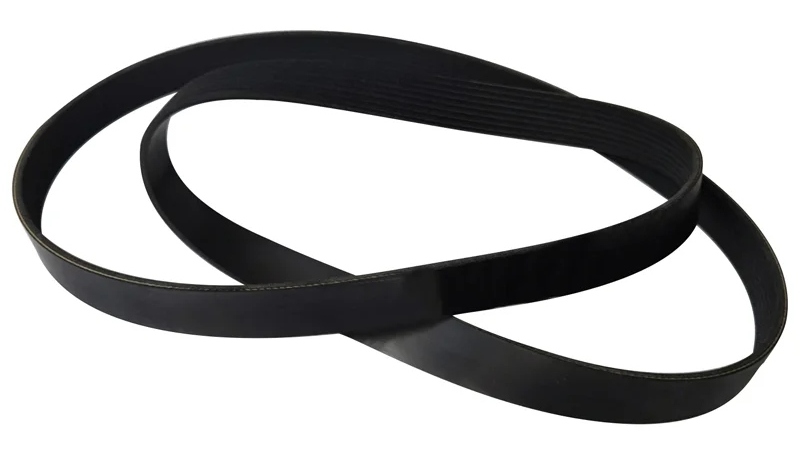
Drive belts are essential to moving your motorhome or tow vehicle down the road. However, with a few YouTube instructions, you should be able to replace one on your own. Doing so can save you several hundred dollars in labor costs.
If your drive belt fails, you’ll lose function to vital systems. Belt fragments can also strike other engine components in your vehicle. The drive belt helps deliver power to your A/C, power steering, and alternator as the vehicle runs.
It’s always a good idea to check your drive belts while running through your maintenance checklist. Also, keeping an extra with your RV spare parts could save you from getting stuck in the wrong place.
16. 12V Light Bulbs
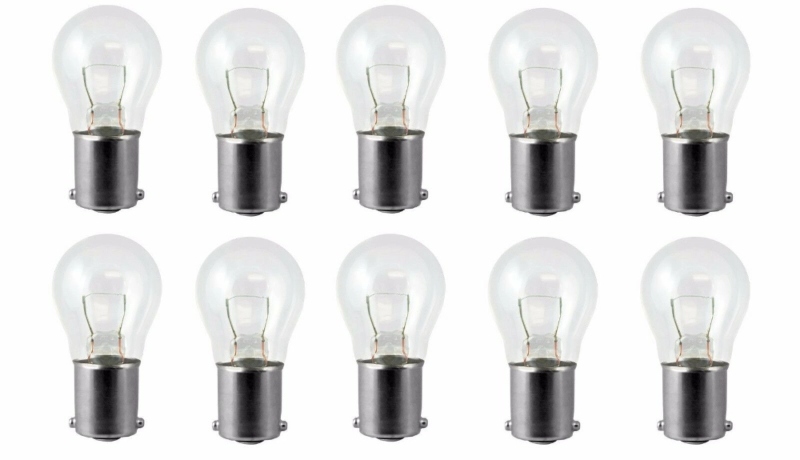
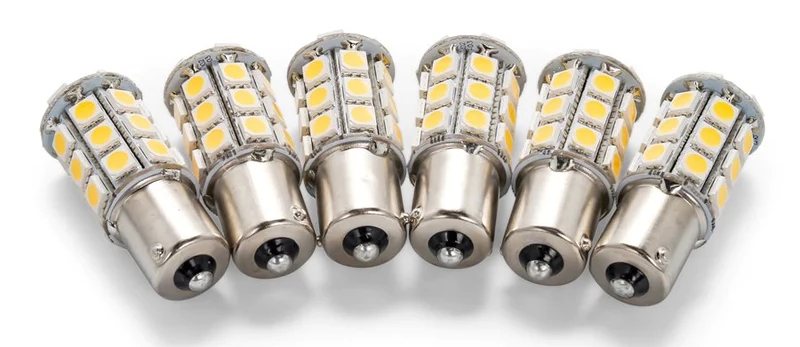
You will need to change a light bulb or two during your RV travels, so keeping several spares is very important. It might not seem like much, but changing those bulbs right away will save you from pulling the flashlights out.
12 Volt light bulbs can include the refrigerator, range hood, stove lights, and interior and exterior lights. Make sure and keep a variety of light bulbs for every need.
If you want to transition away from incandescent bulbs, they make LEDs that fit your existing light fixtures. In addition, these new bulbs don’t produce heat and use significantly less power.
17. Filters
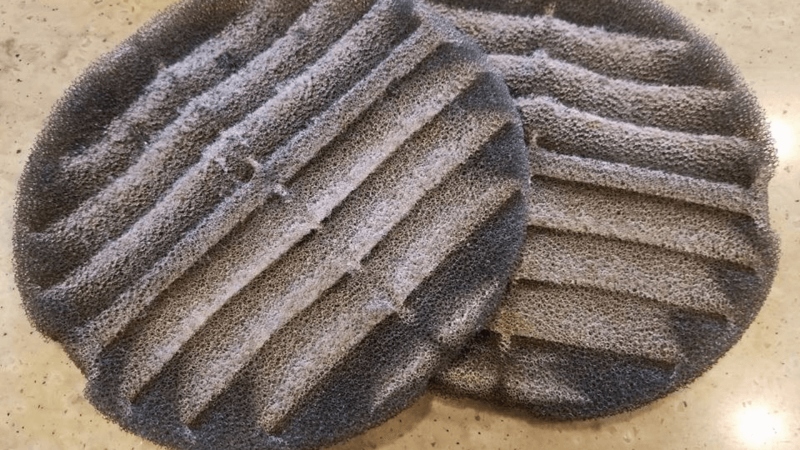
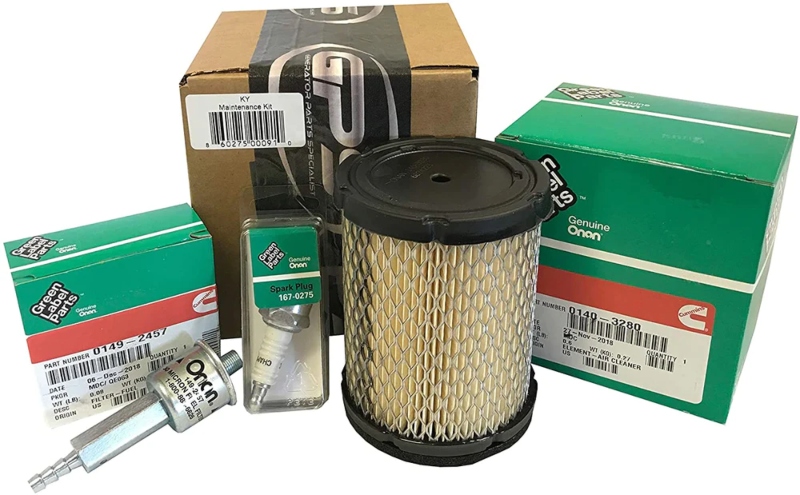

Like light bulbs, filters are everywhere in your RV. Water, air conditioner, oil, and air filters keep your RV’s components clean. As a result, they increase your RV’s lifespan and keep you healthy. Keep various filters with your RV spare parts so you can replace them when needed.
What are the Most Common RV Repairs?
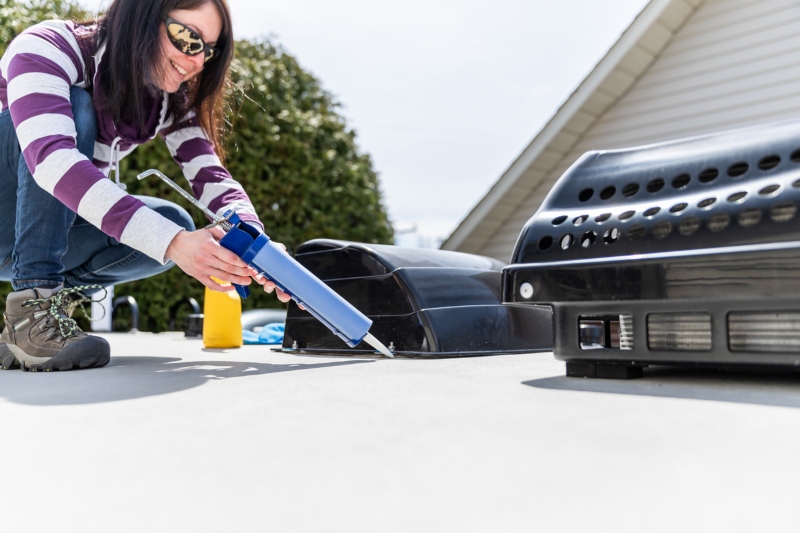
Common RV repairs include roof fixes, tires, clogged toilets, A/C issues, dead batteries, and more. Don’t sell yourself short in your ability to fix some of these common problems.
Which RV Parts Require the Most Maintenance?
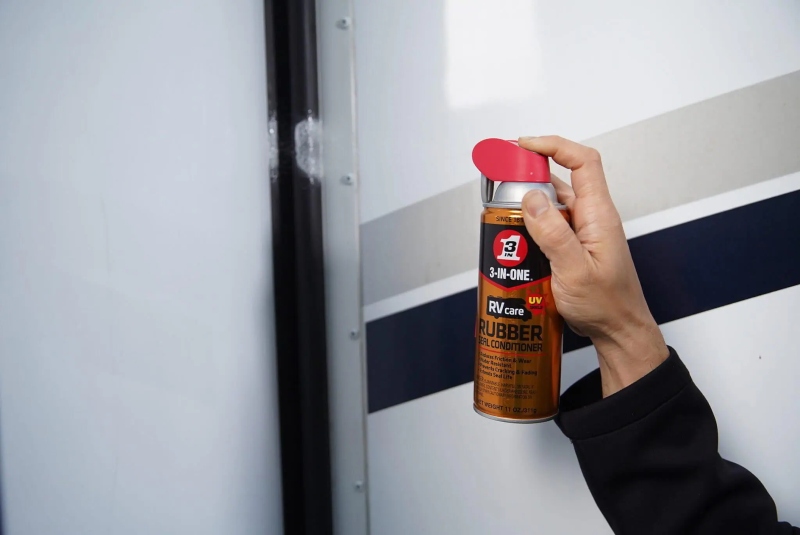
Most parts wear out over time and will need to be replaced. Some of the areas in your RV that might need more maintenance than others include plumbing and any kind of seals. Don’t panic, though. The better you upkeep these areas, the longer your RV and its parts will last.
Which RV Repairs Can you DIY vs. Hiring Out?
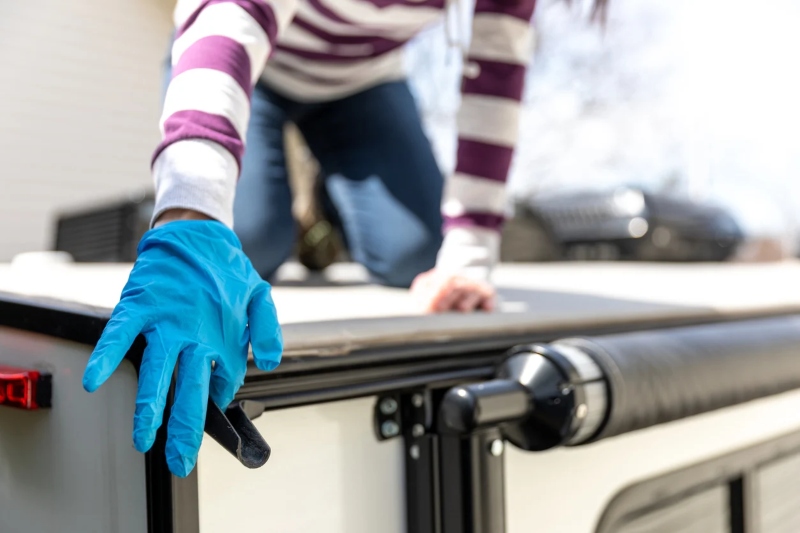
More than 90% of RVs can be repaired by the owners. As I stated earlier, many YouTube channels and blogs like RVBlogger can walk you through many of these repairs. You’ll not only save money, but you’ll gain confidence as you learn to do many of these repairs yourself.
Some of those DIY repairs include repairing or sealing your roof, vent lid replacement, toilet or water system problems, simple power issues, leaky faucets, broken trim, and many more.
Are RV Parts Expensive?
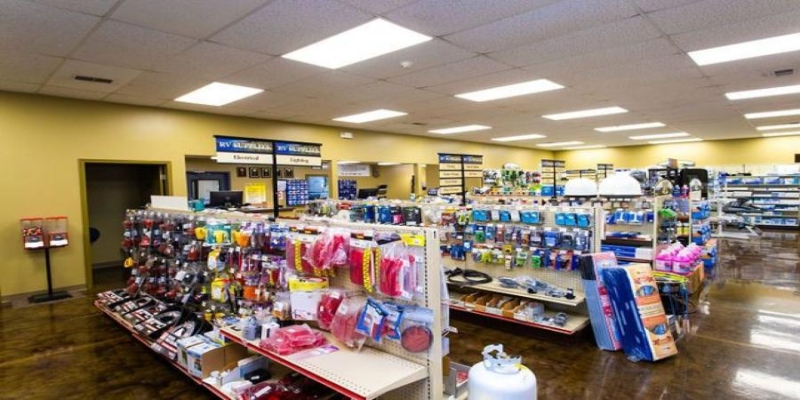
Yes, RV parts can be expensive. Big-ticket items such as a new refrigerator or microwave can tap deep into your traveling budget. Do research before you call the RV technician or take your rig into the shop. The problem might just be something you can handle yourself.
You can also avoid some repairs if you maintain your RV. One weekend every 3-4 months can save you thousands of dollars in repairs.
Better Safe than Sorry: Carry Essential RV Spare Parts with You
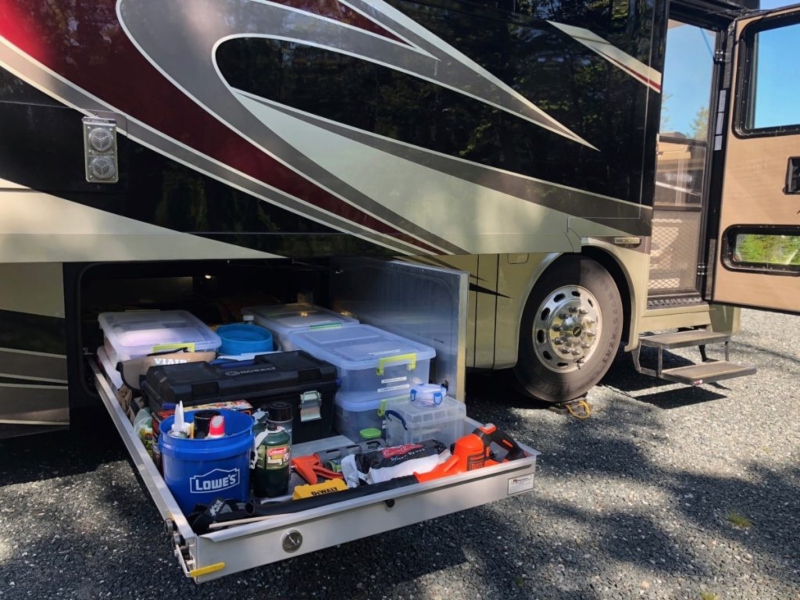
It’s highly likely that if you lived in a bricks-and-sticks house, you would keep tools around to do minor household repairs. An RV isn’t much different. If you keep up with maintenance on your RV and fix things as they break, you’ll likely have your rig around for a long time.
Related Reading:
– How To Replace A 7-Pin Trailer Plug
– Should You Use Dielectric Grease On Trailer Plugs?
About the Author:
Terri Nighswonger and her husband Todd have been RVing and work camping for five years with their Cavalier King Charles Spaniel, Newton, and their Minnie Australian Shepherd, Remi.
They originate from the Midwest but plan to enjoy the West for a few years, wintering in Arizona and summering wherever the road may lead. Writing is Terri’s passion, but she also loves hiking, kayaking, walking her dogs, and anything she can do outdoors.

